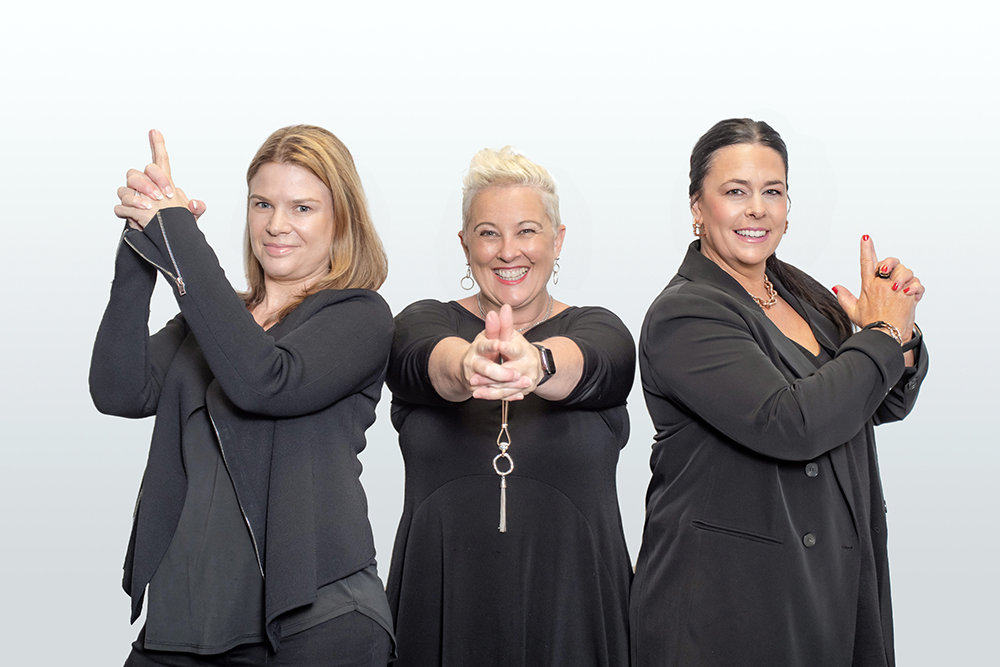If the words “positive duty obligations” makes your brain start to shut down, you’re not alone. It’s one of those things that seems to be landing in the too hard basket for many businesses, but here’s the thing – it’s not going away and you ignore it at your own peril.
Positive duty under the Sex Discrimination Act means your business now has a legal responsibility to proactively prevent workplace sexual harassment, discrimination, and victimisation.
To give it some context, in the past, employers often played whack-a-mole, reacting to complaints as they popped up. Now, the law says, “Nope - you need to prevent the mole from appearing in the first place.” Proactive, not reactive. And it’s actually good news for your workplace culture, your people, and yes, your bottom line.
What positive duty means
Under the Sex Discrimination Act 1984 (Cth), all employers now have a legal obligation to take ‘reasonable and proportionate measures’ to eliminate certain unlawful conduct as far as possible. This legal obligation is referred to as ‘positive duty’ and it is focused on preventing unlawful behaviours in the context of work, workplaces and working relationships. (rather than simply responding to an event).
Specifically:
▪ Discrimination on the grounds of sex in a work context
▪ Sexual harassment in connection with work
▪ Sex-based harassment in connection with work
▪ Conduct creating a workplace environment that is hostile on the grounds of sex
▪ Related acts of discrimination
A really important note to make is that employers have a responsibility to eliminate or reduce the possibility of sexual harassment occurring, not just from coworkers (inside the business) but from clients, customers, suppliers and the general public as well!
Why positive duty matters
It’s tempting to think, “We haven’t had complaints, so we’re fine.” But ignoring positive duty obligations is risky:
Legal consequences: Regulators can take action if a business fails to meet positive duty requirements.
Reputation: Word travels fast - a culture that tolerates harassment or discrimination can scare off customers, clients, and top talent.
Employee engagement and retention: People want to work somewhere safe, fair, and supportive. A positive duty approach helps you keep them happy, productive, and loyal.
Plus, proactively preventing issues is often cheaper than reacting. Think legal fees, investigation costs, lost productivity, and turnover, all of which can add up faster than you think.
5 simple steps to start meeting your positive duty obligations
There are practical ways to get started:
1. Consult your employees
One of the key pieces to delivering on your obligation is to work with your employees to understand where the main risks lie and seek their input into how best to address them. Our recommended approach to this consultation is to conduct an anonymous survey designed to really understand where people feel they are most vulnerable. Once you have identified the highest areas of risk, consult your employees again on the best solutions and strategies. We recommend asking for expressions of interest from the wider team and then forming a focus group for best results.
2. Implement Strategies
Go ahead and implement any strategies that are designed to eliminate or reduce the risk to your employees. In our experience, the strategies the team come up with are generally low cost and easy to do…
3. Review your policies
An absolute must is to make sure your anti-harassment, discrimination, and bullying policies are up to date and easy to access. Avoid legal jargon; use plain language so everyone actually reads them and can understand them. Make sure your policies are updated to align with any strategic changes you make. For example, if one of the strategies suggested by the focus group is to ensure that employees are not booked on flights that cause them to arrive after dark into a remote location, update your travel policy to include this.
4. Train your leaders
Senior leaders need to understand their obligations under the Sex Discrimination Act and have up-to-date knowledge about relevant unlawful conduct. Senior leaders are responsible for ensuring that appropriate measures for preventing and responding to relevant unlawful conduct are developed, recorded in writing, communicated to workers and implemented.
Senior leaders must be visible in their commitment to safe, respectful and inclusive workplaces that value diversity and gender equality. They set clear expectations and role model respectful behaviour.
So, it is critically important to train your managers and supervisors on how to recognise, respond, and report potential issues. Never assume that just because someone is a manager they are aware of the legal requirements with which your business needs to comply. Protect your people and protect your business with up to date training.
5. Set the tone at the top – culture matters
Your team notices how leaders behave. When senior staff demonstrate respectful, inclusive behaviour, it sets the cultural standard. It is important that all leaders foster a culture that is safe, respectful and inclusive. This culture empowers workers (including leaders) to report relevant unlawful conduct, minimises harm and holds people accountable for their actions.
6. Create clear reporting channels
You must make it simple for employees to speak up without fear of backlash. Anonymous reporting options, regular check-ins, and accessible HR contacts all help.
Remember, positive duty is an ongoing responsibility and not simply a box to tick. Small, consistent actions build a safer, more respectful workplace that benefits everyone.
It’s not boring, it’s important
Positive duty obligations might sound dry, but the reality is that proactively preventing harassment and discrimination protects your people and your business. Start small, be consistent, and make respect part of everyday work life.
If you’re unsure where to begin or want help turning these obligations into practical steps, get in touch with the HR Staff n’ Stuff team to discuss how we can help you get your positive duty ducks in a row.







